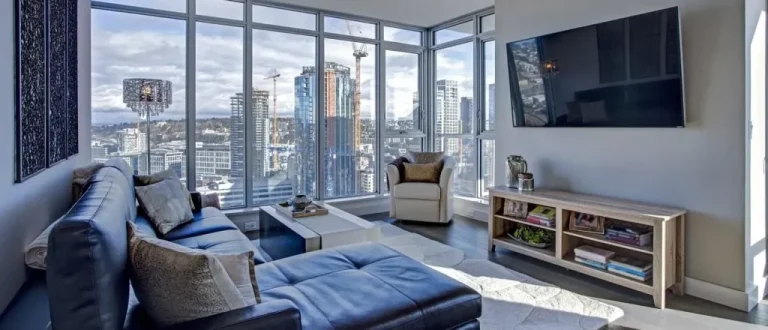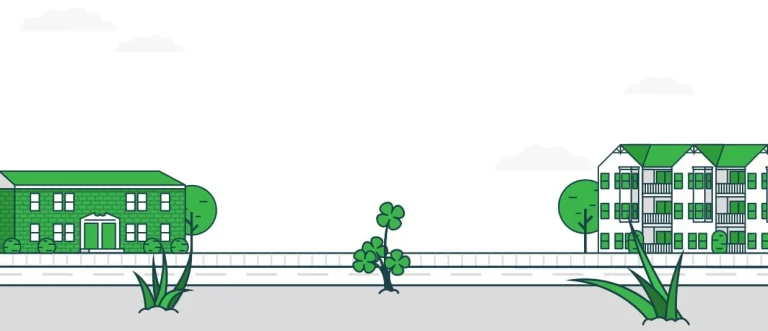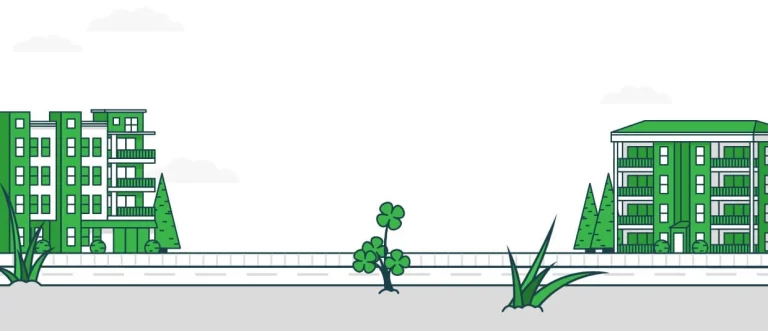With lower overhead and less responsibility to maintain your property, opting for a condo over a traditional home can be an easy decision for some people.
What’s sometimes less straightforward is your insurance needs in a condo. Dealing with the condo board or homeowners association master policy and what it covers can be unclear. You might be wondering what does HOA cover for condos, what a master condominium insurance policy does, and what’s included with your condominium association fees.
What Does a Condo Association Insurance Policy Cover?
A condo association master insurance policy, also called an HOA master policy, protects the complex and its residents against property damage and liability claims. It covers damage to the exterior of the property caused by natural disasters, such as hurricanes or windstorms, and it covers medical expenses and legal bills associated with liability claims in the common areas.
Here are a few things you can expect to be covered with condominium association property insurance:
- Sudden or accidental water damage
- Smoke or fire damage
- Theft
- Vandalism
- Damage caused by a windstorm or hail
- Liability expenses for accidents or injuries if someone gets hurt in your unit
- Identity theft

A Simpler Way to Get Condo Insurance
Protect everything your condo association doesn’t with a custom condo insurance policy at an affordable price.
What Is a Condominium Association?
A condo association is similar to a homeowners association but differs in what each member owns. In a condo association, members own their individual units but take on joint ownership of communal spaces like the lobby, hallways, stairways, elevators, or other amenities present in the building. These spaces are covered with condo master insurance coverage.
In a homeowners association, the members own their homes and properties but generally don’t share ownership for communal spaces like parks or lakes, as these are often owned by the HOA itself, which is often operated by developers or an independent third party.
Most condo or townhome associations have an elected homeowners association, also called a condo board, that is in charge of the premises. With access to communal spaces and resources and a trusted board that takes care of the premises, it’s no wonder why 30% of Americans choose to live in a condo association or other planned community.
What Is a Condo Master Policy?
The master insurance policy for the condo association helps protect common areas like the lobby, elevators, hallways, and amenities. Since condos are a shared-space environment, the board must look after the common areas with condominium association insurance coverage.
While your HOA likely has condo master policy insurance, know it doesn’t safeguard everything in your unit. The master policy protects the shared spaces in your building, but protection for your unit and the belongings you store inside your home must be provided by a condo insurance policy.
Does HOA Fees Include Insurance?
Your condominium association fees help pay for the condo association master insurance policy. So, while you contribute to your condo HOA insurance coverage, it’s not insurance for your unit. You’re paying for the protection of the exteriors and common areas of your complex.
In most cases, the master policy for condominiums ends where your entryway threshold begins. Often, these are referred to as “walls-out” or “studs-out” policies, meaning they cover everything outside of the walls or studs of your unit. Simply put, while extensive, your HOA only covers damages or losses to the condo building excluding most of your actual home.
When it comes to the walls, ceilings, cabinetry, floors, and personal belongings in a unit, it’s usually up to the unit owner to get appropriate coverage. Your condominium master insurance typically doesn’t cover you for things like burglaries or fire damage that you cause, or that start inside your unit, either.
It’s important to note, too, that condo association fees may vary by state, even if coverage remains about the same. For example, condo owners in Florida are seeing a steady rise in costs due to the current insurance crisis facing the state.

A Simpler Way to Get Condo Insurance
Protect everything your condo association doesn’t with a custom condo insurance policy at an affordable price.
What Is the HOA Responsible for in a Condo?
Like with standard homeowners insurance, it’s important to understand the full coverage offered by the insurance for condo associations before considering how much you should invest in condo insurance.
Keep in mind that each complex likely has different coverages in its condo master insurance policy. Once you understand the full extent to which your HOA policy does or doesn’t cover the structures and assets inside your unit or home, you can decide how much additional coverage to invest in. If your complex has walls-out coverage, you may want to get more personal condo coverage to protect the fixtures and features in your unit.
If you have HOA walls-in coverage, which usually protects the surfaces and features in your unit, like the floor and appliances, you might need a smaller amount of condo insurance. However, association fees in condos with walls-in coverage could be higher than those in a property with walls-out or studs-out coverage since you get more coverage for your unit through the HOA condo insurance.
What Is Included in Condo Association Fees?
Condo homeowners association fees generally cover the common areas and exteriors of buildings, no matter what. In some cases, condo or townhouse association insurance may cover things in your unit, like the walls, floors, and appliances. In many cases, the HOA master insurance policy will only cover the original value of finishes or appliances.
If you’ve made improvements since you moved in, you should factor them into your plan and recognize the actual cash value and replacement cost coverage for your belongings.
However, the interior of your unit and the belongings you store in it could still be at risk for fire damage, water damage, and theft, just to name some common causes of concern. Thus, many homeowners purchase condo insurance to be sufficiently covered for damage in their units.
The editorial content on Clovered’s website is meant to be informational material and should not be considered legal advice.



